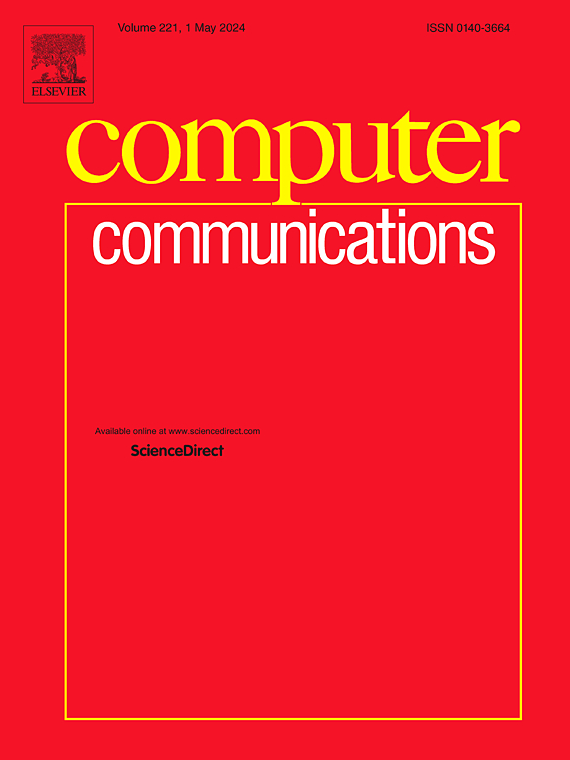ACSFL: An adaptive client selection-based Federated Learning with personalized differential privacy for heterogeneous AIoT environments
IF 4.3
3区 计算机科学
Q1 COMPUTER SCIENCE, INFORMATION SYSTEMS
引用次数: 0
Abstract
Driven by the rapid development of Artificial Intelligence (AI) and the Internet of Things (IoT), the Artificial Intelligence of Things (AIoT) is increasingly applied in smart environments. Federated Learning (FL) meets the need for intelligent data processing in these environments by providing powerful training capabilities while preserving privacy. However, AIoT environments pose new challenges for FL, particularly due to the heterogeneity of edge devices, which vary in hardware, software, network conditions, and data distribution. These factors degrade model performance and hinder convergence. Additionally, communication overhead and data privacy risks are also critical concerns. Although Differential Privacy (DP) can offer protection, they often apply uniform privacy levels, overlooking the diversity of AIoT devices. On the other hand, while current client-selection approaches partially address the heterogeneity of AIoT devices, they also tend to ignore the impact of the noising mechanisms. In this paper, we propose ACSFL, an adaptive client selection-based FL framework that integrates personalized local DP. By a novel, dynamic evaluation metric of node heterogeneity, privacy budget, and contribution, ACSFL can jointly optimize model performance, privacy preservation, and communication efficiency. We further propose a personalized local differential privacy mechanism in ACSFL, to filter and allocate each client’s budget per round, substantially enhancing privacy preservation and yielding significant accuracy gains under identical overall privacy constraints. All the above assertions are also well supported by theoretical and experimental demonstration. Specifically, our experiments show that ACSFL improves model convergence and generalization by 14% on average, achieves comparable model accuracy with 20% fewer clients, reduces communication overhead by over 25%, and saves about 26% of the privacy budget compared to other client selection methods.
ACSFL:针对异构AIoT环境的具有个性化差异隐私的基于自适应客户端选择的联邦学习
在人工智能(AI)和物联网(IoT)快速发展的推动下,物联网(AIoT)在智能环境中的应用越来越广泛。联邦学习(FL)通过提供强大的训练功能,同时保护隐私,满足了这些环境中智能数据处理的需求。然而,AIoT环境给FL带来了新的挑战,特别是由于边缘设备的异构性,这些设备在硬件、软件、网络条件和数据分布方面各不相同。这些因素降低了模型的性能并阻碍了收敛。此外,通信开销和数据隐私风险也是关键问题。尽管差分隐私(DP)可以提供保护,但它们通常应用统一的隐私级别,忽略了AIoT设备的多样性。另一方面,虽然目前的客户端选择方法部分地解决了AIoT设备的异质性,但它们也往往忽略了噪声机制的影响。在本文中,我们提出了ACSFL,一个基于自适应客户端选择的FL框架,集成了个性化的本地DP。ACSFL通过一种新颖的节点异构性、隐私预算和贡献的动态评价指标,可以共同优化模型性能、隐私保护和通信效率。我们进一步在ACSFL中提出了一种个性化的局部差异隐私机制,用于过滤和分配每轮客户端的预算,从而大大增强了隐私保护,并在相同的整体隐私约束下获得了显著的准确性提升。理论和实验都很好地支持了上述论断。具体来说,我们的实验表明,与其他客户端选择方法相比,ACSFL将模型收敛和泛化平均提高了14%,在客户端减少20%的情况下实现了相当的模型精度,将通信开销降低了25%以上,并节省了约26%的隐私预算。
本文章由计算机程序翻译,如有差异,请以英文原文为准。
求助全文
约1分钟内获得全文
求助全文
来源期刊

Computer Communications
工程技术-电信学
CiteScore
14.10
自引率
5.00%
发文量
397
审稿时长
66 days
期刊介绍:
Computer and Communications networks are key infrastructures of the information society with high socio-economic value as they contribute to the correct operations of many critical services (from healthcare to finance and transportation). Internet is the core of today''s computer-communication infrastructures. This has transformed the Internet, from a robust network for data transfer between computers, to a global, content-rich, communication and information system where contents are increasingly generated by the users, and distributed according to human social relations. Next-generation network technologies, architectures and protocols are therefore required to overcome the limitations of the legacy Internet and add new capabilities and services. The future Internet should be ubiquitous, secure, resilient, and closer to human communication paradigms.
Computer Communications is a peer-reviewed international journal that publishes high-quality scientific articles (both theory and practice) and survey papers covering all aspects of future computer communication networks (on all layers, except the physical layer), with a special attention to the evolution of the Internet architecture, protocols, services, and applications.
 求助内容:
求助内容: 应助结果提醒方式:
应助结果提醒方式:


